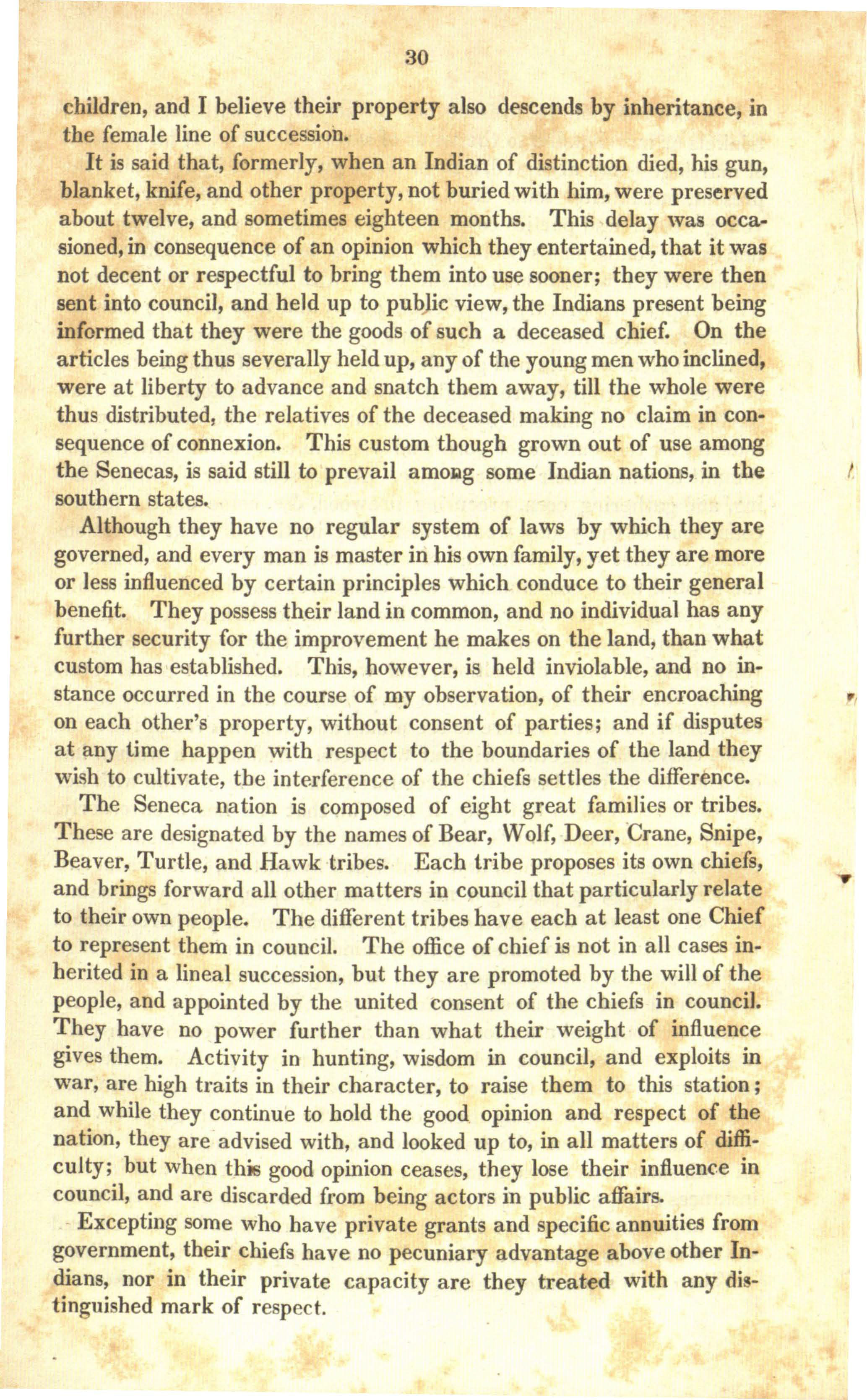children, and I believe their property
also descends by inheritance, in
the female line of succession.
It is said that, formerly, when an Indian of distinction died, his gun,
blanket, knife, and other property, not buried with him, were preserved
about twelve, and sometimes eighteen months. This delay was occa-
sioned, in
consequence of an opinion which they entertained, that it was
not decent or
respectful to bring them into use sooner; they were then
sent into council,
and held up to public view, the Indians present being
informed that they
were the goods of such a deceased chief. On the
articles being thus
severally held up, any of the young men who inclined,
were at liberty to
advance and snatch them away, till the whole were
thus distributed, the
relatives of the deceased making no claim in con-
sequence of connexion.
This custom though grown out of use among
the Senecas
southern states.
Although they have no regular system of laws by which they are
governed, and
every man is master in his own family, yet they are more
or less influenced
by certain principles which conduce to their general
benefit. They possess
their land in common, and no individual has any
further security for the
improvement he makes on the land, than what
custom has established. This,
however, is held inviolable, and no in-
stance occurred in the course of my
observation, of their encroaching
on each other's property, without consent
of parties; and if disputes
at any time happen with respect to the
boundaries of the land they
wish to cultivate, the interference of the
chiefs settles the difference.
The Seneca nation
These are designated by the names of Bear, Wolf, Deer, Crane, Snipe,
Beaver, Turtle, and Hawk tribes. Each tribe proposes its own chiefs,
and brings forward all other matters in council that particularly relate
to their own people. The different tribes have each at least one Chief
to represent them in council. The office of chief is not in all cases in-
herited in a lineal succession, but they are promoted by the will of the
people, and appointed by the united content of the chiefs in council.
They have no power further than what their weight of influence
gives them. Activity in hunting, wisdom in council, and exploits in
war, are high traits in their character, to raise them to this station;
and while they continue to hold the good opinion and respect of the
nation, they are advised with, and looked up to, in all matters of diffi-
culty; but when the good opinion ceases, they lose their influence in
council, and are discarded from being actors in public affairs.
Excepting some who have private grants and specific annuities from
government, their chiefs have no pecuniary advantage above other In-
dians,
nor in their private capacity are they treated with any dis-
tinguished mark
of respect.

